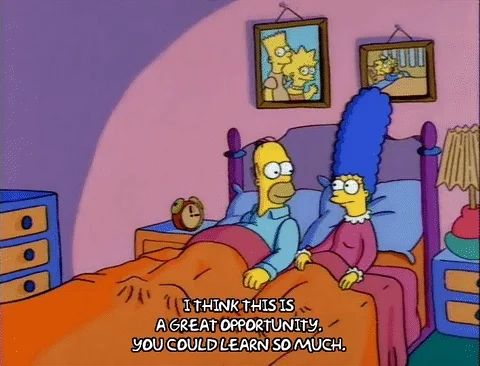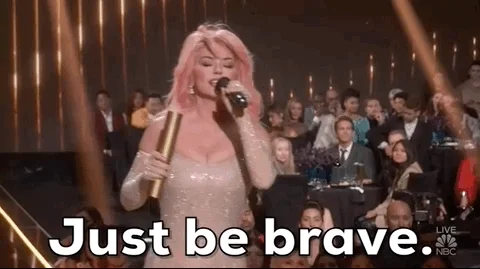
This logo isn't an ad or affiliate link. It's an organization that shares in our mission, and empowered the authors to share their insights in Byte form.
Rumie vets Bytes for compliance with our
Standards.
The organization is responsible for the completeness and reliability of the content.
Learn more
about how Rumie works with partners.
When you're a leader, you take charge of a group of people from different job levels and departments. When you work with such a wide range of people, you might encounter confrontations.

A confrontation isn't just a discussion — it's an argument, often heated with strong emotions. It might make you uncomfortable, frustrated, or anxious, especially when you have the responsibility of leading your people and defusing the situation.
But confrontations offer you a great opportunity to grow as a leader! These tips will help you successfully hande confrontations.
1. First, focus on yourself
To navigate emotionally charged confrontations, it's important that you stay calm. Receiving strong emotions can be challenging and frustrating, but take a deep breath and do your best to stay calm. This way, you can avoid escalating the situation even further.

You might not have answers to all the questions right away, and that's okay! It's better to be honest and buy yourself some time to think than to give rushed, incomplete answers. There are some clever things you can say to buy yourself more time:
"Can you expand on your questions a little bit more?"
"What do you mean by that?"
"Did I understand you correctly that...[paraphrase the question]?"
"Let me gather my thoughts."
Did you know?
It takes time to develop a strong, peaceful mind. Learn how to manage your window of tolerance, your optimal high-functioning zone!
2. Empathy, empathy, empathy!
Empathy is the ability to "sense other people’s emotions", coupled with "the ability to imagine what someone else might be thinking or feeling."
It's the ability to understand where someone's emotional reactions are coming from, relate to their experience, and imagine what it's like. Showing empathy plays a crucial role in handling confrontations.

A framework called "Three A's," which is often used in the customer service industry, can also be helpful when handling confrontations.
Imagine your team member is upset because their peer was selected to lead the new project when they thought they should be selected because of their longer tenure. Here is how the Three A's can help:
Three A's
Acknowledge: Before you jump into the solution mode, acknowledge their feelings. It gives the person permission to feel these feelings.
Align: Meet the person where they are. Align yourself with their emotions so that they feel understood.
Assure: Once the emotions are taken care of, now is the time to focus on the resolution.
Example
"I understand you're frustrated because you weren't selected for the project leader role."
"I can totally see why you feel this way when you were looking forward to this opportunity."
"We'll tackle this together. Let's see how you can contribute to the project and showcase your impact without being the project leader."
Now it's your turn to give it a try!
Meet Sam. They've worked really hard for the past 6 months and have been looking forward to the annual impact review. They were certain that they'd get a raise!
You're their manager who's delivering the impact review. While Sam worked hard, they missed several deadlines for projects and struggled to handle different tasks. You delivered the impact review and there's no raise.
Sam is very upset by the impact review.

Quiz
Choose all the possible responses you can say to Sam using the Three A's framework.
It's important to acknowledge Sam's feelings and show that you'll be there to support them. It's not helpful to deny their feelings or abandon them.
3. Focus on facts
As important as empathy is your ability to think logically.
First, stick to facts, not emotions, or even the person themselves. What is the root cause that resulted in this confrontation? Why did this issue happen in the first place? Why is it worth solving the confrontation?

Emotions can cloud your judgment. Focusing only on facts, allows you to think more logically and make the best judgment.
Quiz
What are some examples of using logical thinking?
Focusing on the facts helps you understand the root cause of the confrontations while emotions or personal relations can distract you from seeing these facts and what's really important.
4. Focus on actions
Through logical and critical thinking, you can also focus on the solutions! It's important that your solutions come with actionable steps. It helps everyone to shift their mindset to the solution mode and move towards the solution together.

You might consider using goal models to structure your solutions. One commonly used model is SMART goals. It's a framework that will help you set a clear, trackable, and achievable goal, instead of a goal that's vague, hard to track, and hard to achieve.
It stands for:
Specific: Does the goal provide specific actions?
Measurable: Is the success of the goal measurable?
Achievable: Is it realistic to achieve the goal?
Relevant: Is the goal relevant to the solution?
Time-bound: What is the timeline or deadline for the goal?
5. Don't shy away from conflicts
Don't leave it too late!
Addressing confrontations is scary. But the longer you leave it, the bigger the confrontation becomes.
It's also important to face the reality that, as a leader, you'll inevitably face a confrontation or two in your career. But you can choose to handle it early on and resolve it more easily.
If you notice a hint of a confrontation, tackle it early on. It'll benefit you and everyone else involved in the long term!
Confrontations can build stronger relationships.
It's easy to think that confrontations are bad, but sometimes they can lead to stronger relationships with more trust.
You learn more about the person and it gives you a chance to be honest with each other. When handled correctly, resolving a confrontation can be a powerful tool!

You'll only become stronger.
You might feel anxious about facing confrontations or you might not feel confident about how you've handled the confrontations. But you'll always learn from your experiences and you'll always become a better leader afterwards.
Take Action

Use what you've learned from this Byte to enhance your leadership skills!
This Byte has been authored by
Yumiko Mizuno
Multilingual Team Lead
BA
